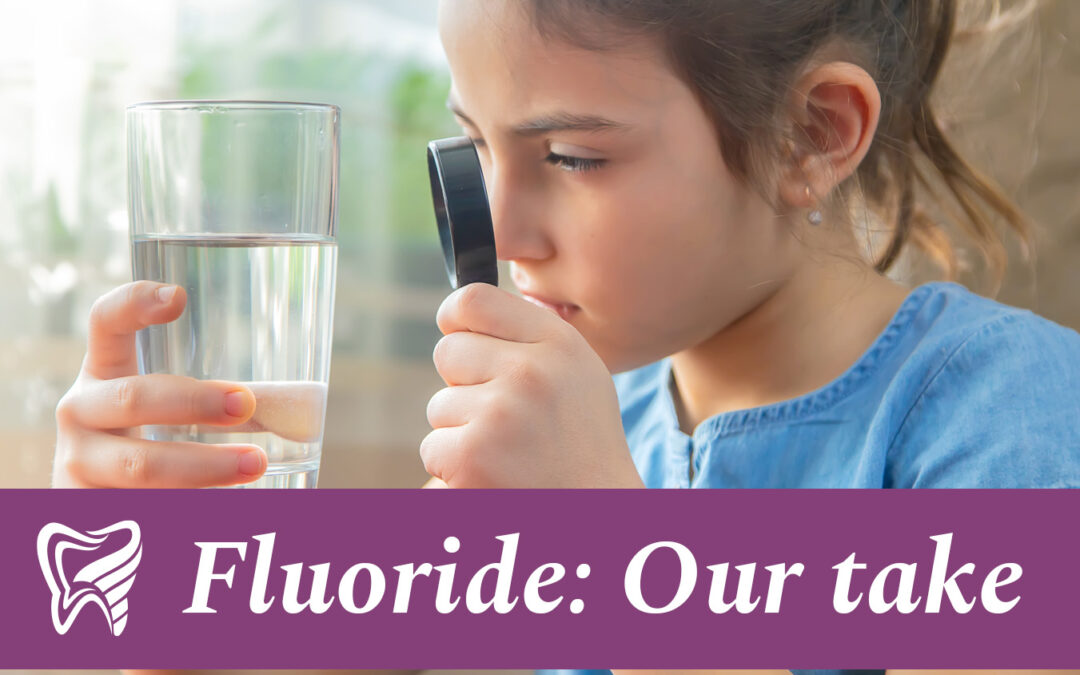Adding fluoride to drinking water is a hot topic in many cities around the world, including right here in Calgary, Canada. After a few years of not having fluoride in the drinking water, we recently voted to have it put back in.
We wanted to add a dentist’s opinion to this ongoing conversation about health consequences and benefits.
All water has some fluoride in it
According to the Centers for Disease Control and Prevention (CDC), “the mineral fluoride occurs naturally on earth and is released from rocks into the soil, water, and air. All water contains some fluoride. Usually, the fluoride level in water is not enough to prevent tooth decay; however, some groundwater and natural springs can have naturally high levels of fluoride.”
We add fluoride to drinking water to promote the protection of teeth from decay, and in such low doses, it is not harmful to health. The CDC again: “Fluoride helps to rebuild and strengthen the tooth’s surface, or enamel. Water fluoridation prevents tooth decay by providing frequent and consistent contact with low levels of fluoride. By keeping the tooth strong and solid, fluoride stops cavities from forming and can even rebuild the tooth’s surface.”
Who is the fluoride for?
Having fluoride in our drinking water ensures that those without access to proper dental care, and those who have poor diets are more protected from tooth decay than they would be otherwise. Many people don’t have optimal oral hygiene. Kids are a good example of this – their oral health habits, or lack of habits, will affect them later in life, and these are impacted by socioeconomic conditions, education, and other factors largely outside their control! When there is no fluoride in the water, we dentists and hygienists notice an increase in cavities in children that may have been preventable.
It is true that if you brush effectively, floss consistently, and are careful with your diet (avoiding pop and sugary sweets, save once for a while), you probably don’t need fluoride in your water. Fluoride is not a blanket solution, or a forcefield. It doesn’t single-handedly rush in and stop cavities. This means that it is not strictly necessary for a well-functioning society. However, the levels of fluoride present in the water pose no health risk to you.

As dentists, we tend to support fluoride because we see patients who do not have the opportunity, education, or choices to build and maintain good oral health habits.
Fluoride limits the damage for them, and for those we know aren’t even coming to the dentist. This means that it helps improve their personal health outcomes, as well as save a lot of public health money in the long run, because oral health issues can get expensive and usually ripple outwards to cause even bigger issues elsewhere in the body!

